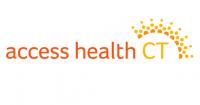DENVER — Open Enrollment for 2024 health insurance coverage starts today in Colorado, and people can expect more savings than ever before due to federal changes and innovative state programs.
Save on Monthly Costs
As the state’s official health insurance marketplace, Connect for Health Coloradois the only place where residents can qualify for and receive financial help for their health insurance.
The American Rescue Plan Act, which passed in 2021 and provides enhanced Advance Premium Tax Credits, is still in effect. That means people can continue to expect a higher level of financial help and people with higher incomes can now qualify. Currently, 77 percent of Connect for Health Colorado customers get financial help to lower the cost of health insurance. This year, three out of five Connect for Health Colorado enrollees will have a plan available to them with a premium of less than $10 per month.












